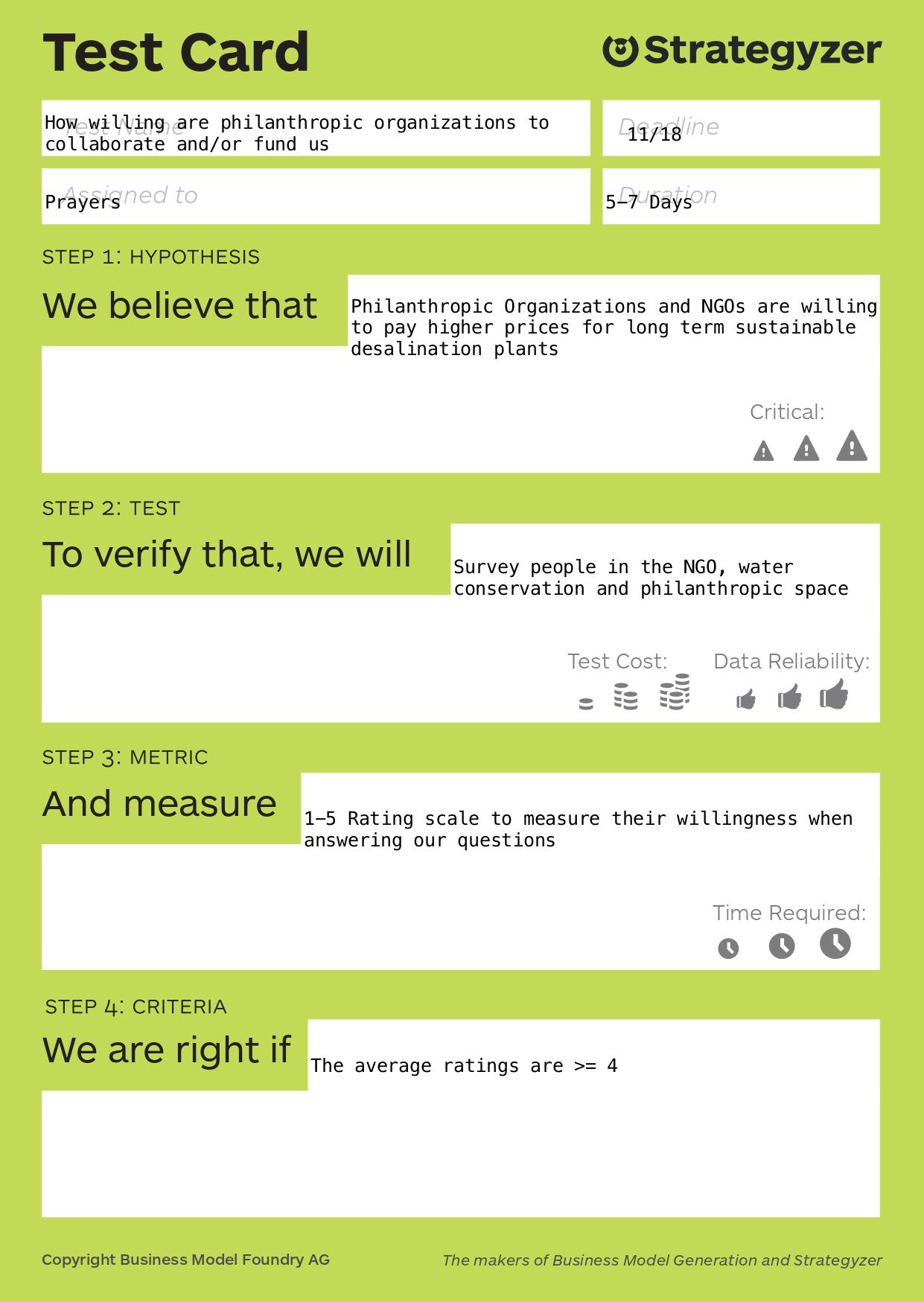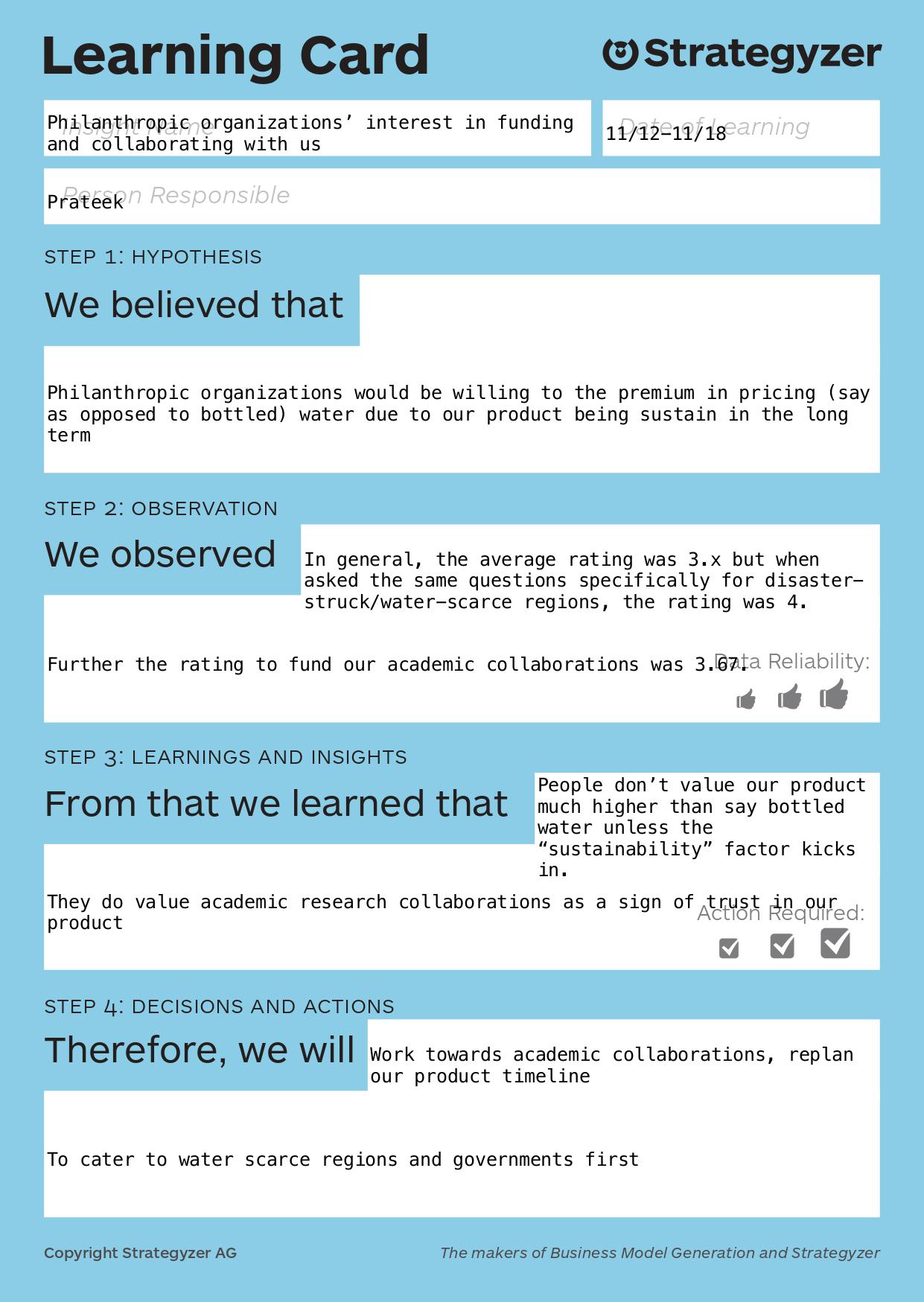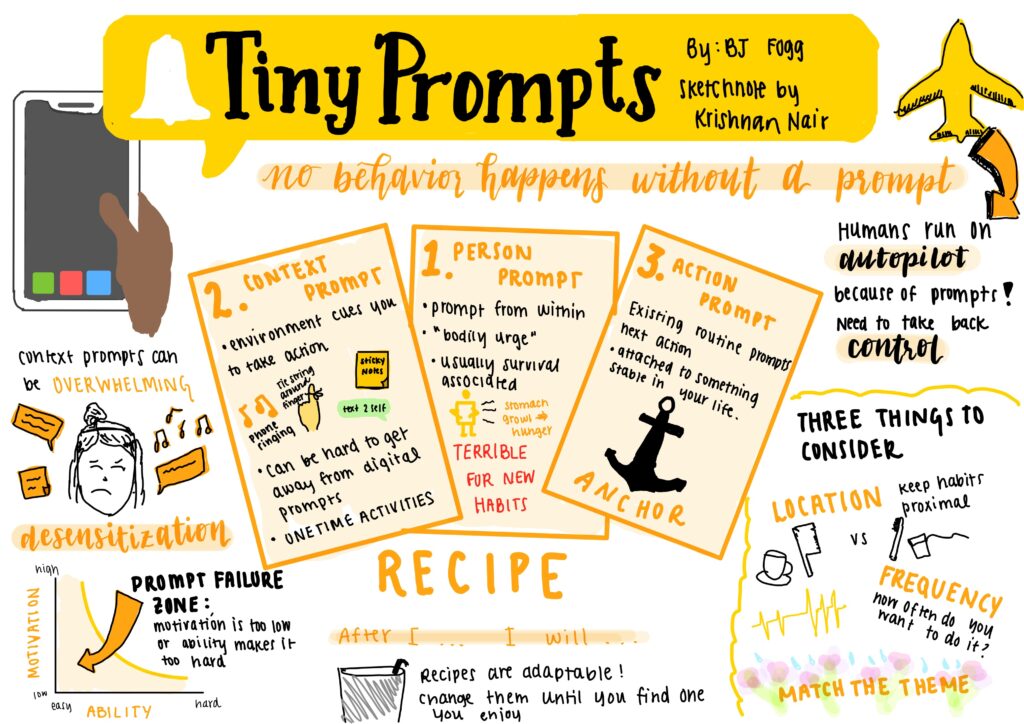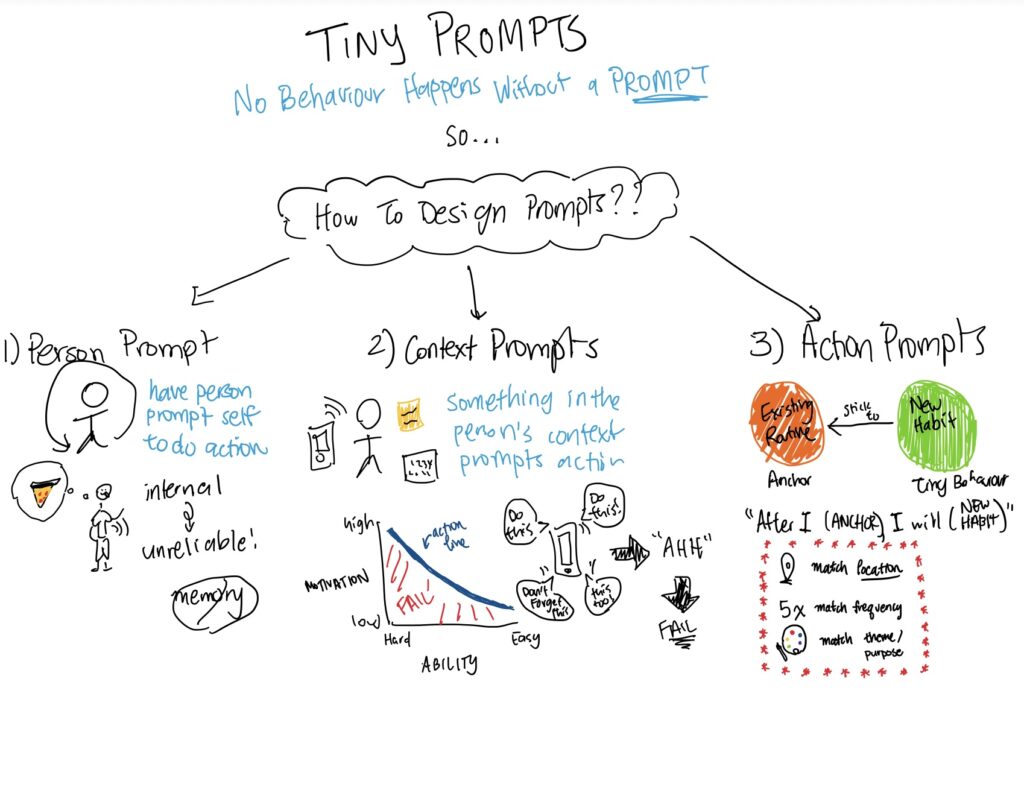The assumption which I tested for our product was whether or not philanthropic organizations/Non-Governmental Organizations (NGOs) would be willing to collaborate with us and/or fund our desalination plants. To test this assumption, I did brief survey interviews with graduate students in the Doerr School of Sustainability working on new forms of technology to make water potable as well as people in NGOs (especially in India) that work on making water more accessible in poverty-stricken areas. I was able to talk to 3 people as opposed to my original plan of 5. Their busy schedules and trying to find meeting time across time-zones is the reason why I submitted this write-up so late. As part of the interview call, I first explained to them our product and its use case and asked them a few questions on a 5-point scale such as:
– With the current pricing that we have, how likely will you be willing to buy our plant and set it up?
What about in times of calamities and/or disaster-struck areas?
– Would you be willing to pay a one-time premium for our self-sustaining potable water generation technology than bottled water?
– Will you be willing to fund research into making miniaturized versions of our plants?
Here are some of the key discussion points I found:
– People were more willing to pay (the premium in pricing) in times of crises/water-scarce regions than they were in “well-off” coastal regions.
– They did not have much preference for wave-powered desalination technology over bottled water when considering supplying water to the masses
– Yes! They would be willing to fund research as long as we have academic collaborations to back it up.
From these interviews, I think that to get funding from philanthropic organizations, our team will have to consider the pricing model. We can perhaps make the technology affordable by making smaller-scale versions of our plants. Further, having academic collaborations will not only give our company access to the latest tech in this domain but also generate trust in philanthropic organizations to help fund our projects. Further, while we will be making most of our money from government contracts and affluent coastal resorts, at some near point in the future we should also start focusing on making potable water accessible to water-scarce regions.





